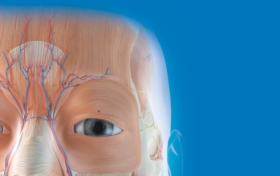Search This Blog
This is a blog where we discuss realistic idea that will optimize your life....
Posts
Showing posts from January, 2016

Posted by
Taiwo abayomi
15 healthy eating habits that work, according to science
- Get link
- X
- Other Apps

Posted by
Taiwo abayomi
Here are six scientifically proven tips for more effective studying
- Get link
- X
- Other Apps

Posted by
Taiwo abayomi
Visible light emitted from a black hole has been detected for the first time
- Get link
- X
- Other Apps

Posted by
Unknown
'Seeing' black holes with the naked eye
- Get link
- X
- Other Apps

Posted by
Unknown
At the core of the toilet's operation is a nanotech membrane, which separates vapourised water from the rest of the waste after some initial sedimentation. This process cleans it up for household washing or field irrigation by removing pathogens while the liquid is in a vapourised state. Nano-coated beads lead to the formation of clean water droplets on the other side. An Archimedean screw system then kicks into gear to send the leftovers into a second chamber where they can be incinerated and turned into ash and heat. While the details of this second part of the process are still being finalised, the designers say it should be able to produce enough energy to power the whole operation, with some leftover to charge small gadgets such as mobile phones. The remaining ash can be used as a fertiliser, while the closed lid and a special rotating mechanism (which replaces the flush) will prevent any unwanted odours from escaping. That last point is important - the squalid state of many toilets in developing nations can lead to people opting for the great outdoors, which brings its own set of hygiene and safety issues. The makers of the toilets are planning to distribute them through a rental system, which would bring costs for users down even further. Ghana has been earmarked as a potential location for the first trial run. The Nano Membrane Toilet is being developed by researchers at Cranfield University, and was recently announced as a finalist at the Cleantech Innovate showcase. "We are delighted to see this innovative solution gaining national recognition through Cleantech Innovate," said one of the team, Elise Cartmell. "The Nano Membrane Toilet has the potential to change millions of lives by providing access to safe and affordable sanitation."
- Get link
- X
- Other Apps

Posted by
Unknown
Bugs Build Intricate Structures Without Thinking Big
- Get link
- X
- Other Apps

Posted by
Unknown
Mysterious radio signals from space are much better test of Einstein's General Relativity
- Get link
- X
- Other Apps

Posted by
Unknown
Four elements have just earned a permanent spot in the periodic table
- Get link
- X
- Other Apps

Posted by
Unknown
Name that smell—if you can't, it could be an indicator of a problem somewhere in your brain. New research suggests that scratch-and-sniff smell tests could become an easy and cheap way to detect signs of traumatic brain injury and neurodegenerative ailments. Recent research found that a diminished sense of smell predicted frontal lobe damage in 231 soldiers who had suffered blast-related injuries on the battlefield. In the Department of Defense study led by Michael Xydakis of the Uniformed Services University of the Health Sciences, subjects with low scores on a smell test were three times as likely to show evidence of frontal lobe damage during brain imaging than those whose sense of smell was normal. When the sense of smell is working properly, it acts as a matchmaker between odorant molecules in the air and memories stored in the brain. Those memories are not housed in a single place, Xydakis says, but extend across many regions. Because different smell signals have to take a variety of paths to reach their destinations, arranging their travel requires a lot of coordination. “This unique feature makes an individual's ability to describe and verbally name an odor extremely challenging and cognitively demanding,” he says. A damaged sense of smell, therefore, can indicate that the ability to make those connections has been hampered by disease, a lack of sleep or, as shown in Xydakis's study, injury to the brain. The new results add to a growing understanding of the link between brain damage and an impaired sense of smell. Researchers have been working for years to use olfaction tests to track damage to the brain caused by neurodegenerative ailments such as Parkinson's and Alzheimer's diseases. Kim Good, an associate professor in the psychiatry department at Dalhousie University in Nova Scotia, is currently recruiting subjects for a cohort study that aims to better understand the link between olfaction and Parkinson's, which could improve early identification and intervention. “Olfactory deficits are as common as tremor in Parkinson's, and they help rule out other competing diagnoses,” Good says. Smell is also the first sense to be affected by Alzheimer's, with the hallmark protein tangles of the disease appearing early in the olfactory bulb, says psychiatrist Davangere Devanand of Columbia University. Last January he and his colleagues reported the results of a four-year-long cohort study in Manhattan, which found that scores on a multiple-choice scratch-and-sniff test in which participants had to identify 40 scents were good predictors of cognitive decline. It's not hard to imagine such exams becoming a routine part of primary care for older patients. “The beauty of olfaction,” Good points out, “is that testing is easy and can be done in the family physician's office.” — Ian Chant Why Smell Is Special The unique characteristics of our sense of smell make sniff tests ideal for diagnosing brain injury. Here are some of the most interesting scientific findings about this unusual sense: —Victoria Stern Ian Chant Recent Articles Forgetting Is Harder for Older Brains Could a Neural Implant Correct Errant Thoughts? How to Intentionally Forget a Memory Victoria Stern Recent Articles Mass Shootings Are Contagious Three Books Explore the Inner World of Animals Three Books Explore the Spiral of Shame ADVERTISEMENT The adult brain can generate new neurons in the olfactory bulb, the brain region that processes smells. This area is one of just a few regions that continue to grow new neurons during adulthood. Individuals vary in how they perceive odors and whether or not they can detect certain scents, and yet humans seem to universally enjoy the smell of vanilla. Anosmia, a condition in which people completely lose their sense of smell, can be debilitating. Sufferers often report feeling disconnected from their surroundings, and many become severely depressed. Romantic couples can unconsciously sense their partner's emotional state from their sweat—and the longer they have lived together, the better they are at it. Babies locate their mother's nipples in part by learning a smell map of the breasts.
- Get link
- X
- Other Apps

Posted by
Unknown
My new year message to u
- Get link
- X
- Other Apps